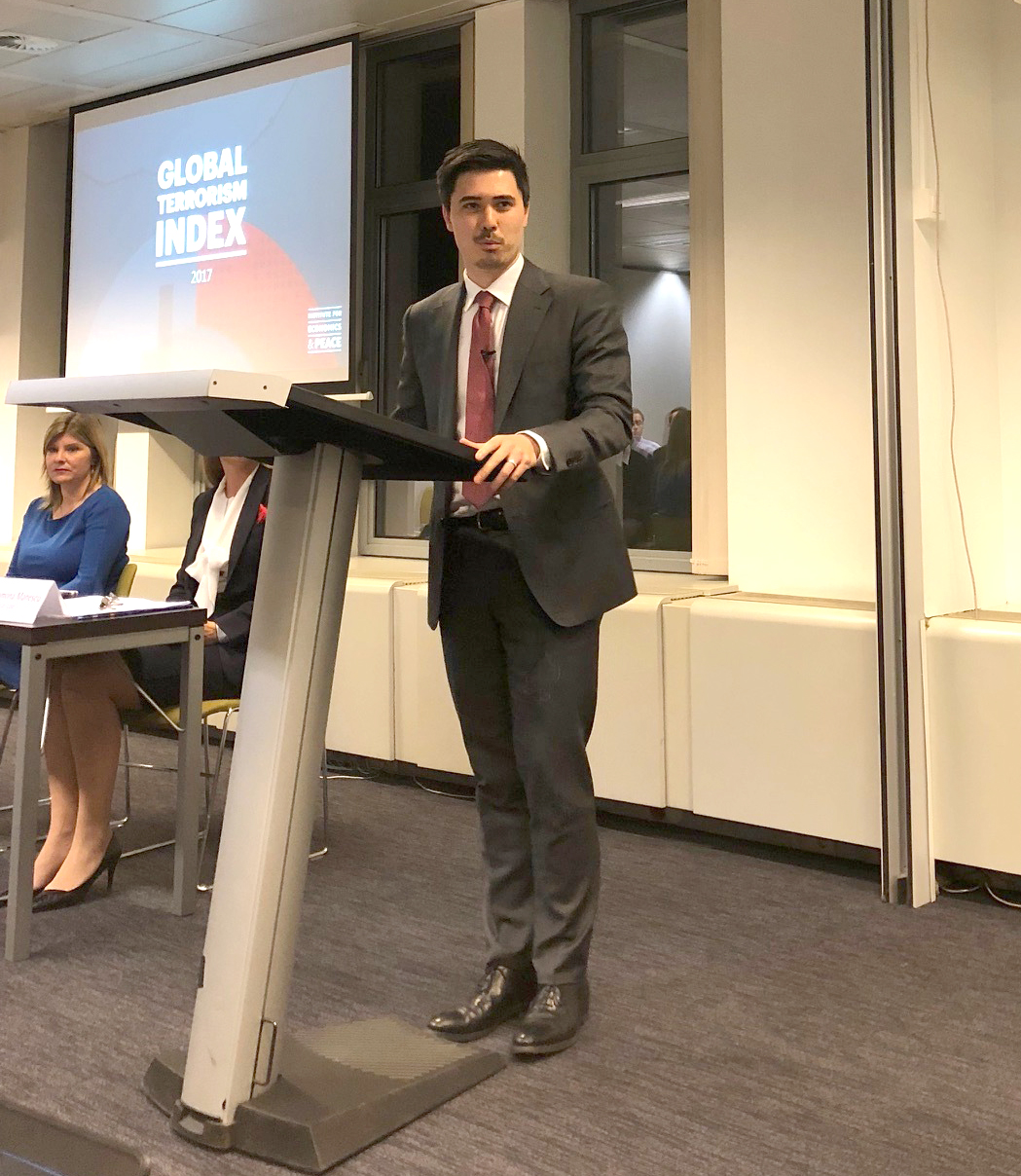LOC12:29
09:29 GMT
 Daniel Hyslop Research Director of the Brussels-based Institute for Economics and Peace
Daniel Hyslop Research Director of the Brussels-based Institute for Economics and Peace
BRUSSELS, Nov 17 (KUNA) -- For the second year in a row, the total number of global deaths caused by terrorism has declined.
The reduction in deaths is encouraging, but 2016 was also the third deadliest year since 2000, according to the Global Terrorism index 2017 (GTI).
The Australian Institute for Economics and Peace, in cooperation with other think tanks, launched the report by GTI in Brussels Thursday night.
Daniel Hyslop, Research Director of the Brussels-based Institute for Economics and Peace, presenting the report said that there were 77 countries that experienced at least one death from terrorism in 2016.
This is more than at any time in the past 17 years with two out of every three countries experiencing at least one terrorist attack.
However, there have been 22 percent fewer deaths from terrorism since the peak of terror activity in 2014.
This was in part due to significant declines in terrorism in four of the five countries most impacted by terrorism - Syria, Pakistan, Afghanistan and Nigeria.
Collectively these four countries recorded 33 per cent fewer deaths.
However, the report noted that the so-called Islamic State killed 50 percent more people in 2016 making it their deadliest year with over 9000 deaths mainly in Iraq.
Terrorism deaths attributed to Boko Haram in Nigeria fell by 80 percent due to better regional cooperation and increased military pressure.
The global economic impact of terrorism was USD 84 billion in 2016.
GTI is a comprehensive summary of the key global trends and patterns in terrorism over the last 17 years.
The report measures 163 countries, and covering 99 percent of the world's population.
One of the principle aims of GTI is to help us to understand the global, regional and local impact of terrorism.
"With this understanding we can inform a positive practical debate about the future of terrorism and importantly, how we respond," said Hyslop.
In her keynote speech at the event, Ramona Manescu, Member of the European Parliament from Romania m lamented that the UN even after 20 years of negotiations has failed to agree on the definition of terrorism.
She noted that there are 18 different definitions of terrorism.
Referring to the increasing terrorist threats by use of drone and cyber-attacks, Manescu said that "aided by Iran, Hizbollah has developed the most advanced drone capability of any terrorist group in the world."
"An Iranian backed cyber unit known as Hizbollah cyber group is suspected of launching cyber-attacks against Gulf countries," she said. (end)
nk.mb